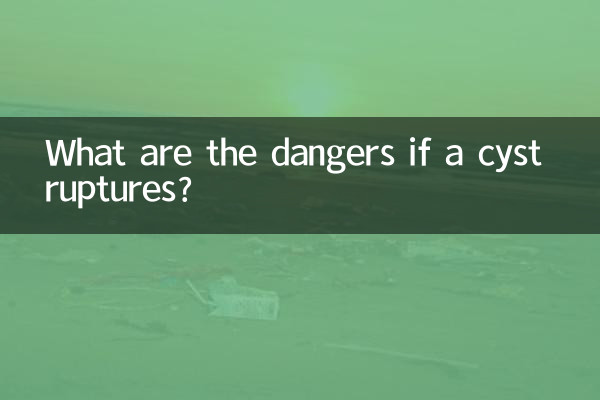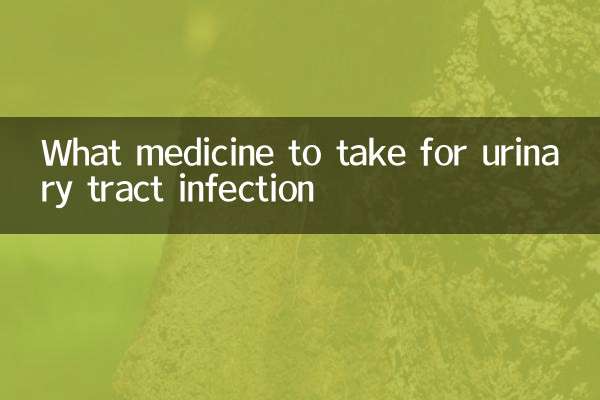What are the dangers if a cyst ruptures?
Cysts are a common disease that can occur in any part of the body, such as skin, liver, kidneys, ovaries, etc. When a cyst ruptures, it can cause a host of health problems. This article will combine the hot topics and hot content on the Internet in the past 10 days to analyze the dangers of cyst rupture in detail, and provide structured data to help readers better understand this issue.
1. Common hazards of cyst rupture

When a cyst ruptures, its contents may leak into surrounding tissue or body cavities, causing the following problems:
| Hazard type | Specific performance | possible consequences |
|---|---|---|
| Infect | Cyst contents carry bacteria or fungi | Cause local or systemic infection, even sepsis |
| inflammatory response | Surrounding tissue is irritated | Redness, swelling, pain, fever |
| Bleeding | cyst wall blood vessel rupture | Internal or external bleeding, which requires emergency treatment in severe cases |
| organ dysfunction | The cyst compresses or damages surrounding organs | Ruptured ovarian cysts may cause infertility |
2. The dangers of cyst rupture in different parts
The dangers of cyst rupture vary depending on where it occurs. The following are several common dangers of cyst rupture that have been hotly discussed recently:
| cyst site | specific hazards | Urgency |
|---|---|---|
| ovarian cyst | May cause severe abdominal pain and infertility | High (need immediate medical attention) |
| liver cyst | Causing abdominal infection and abnormal liver function | Middle to high |
| renal cyst | Hematuria, low back pain, impaired kidney function | Middle to high |
| epidermal cyst | local infection, scarring | low to medium |
3. Analysis of recent popular cases
According to the hot content on the Internet in the past 10 days, the following are some cases of cyst rupture that have attracted widespread attention:
1.Case of misdiagnosis of ovarian cyst rupture: A female patient went to the hospital for severe abdominal pain and was initially diagnosed as gastroenteritis. Later, a detailed examination revealed that she had a ruptured ovarian cyst, which almost delayed treatment.
2.Liver cyst rupture causing peritonitis: The case of a middle-aged male patient who recovered from emergency surgery for severe peritonitis caused by a ruptured liver cyst has sparked discussion about the importance of regular physical examinations.
3.Improper self-treatment of ruptured epidermal cyst: A netizen shared his experience of severe infection caused by squeezing a facial cyst, and reminded everyone not to deal with cysts on their own.
4. How to prevent and treat cyst rupture
In response to the issues that netizens are most concerned about recently, here are some professional suggestions:
| Precautions | Emergency treatment | Indications for medical treatment |
|---|---|---|
| Regular physical examination to detect cysts early | Stay calm and avoid strenuous exercise | severe pain or persistent discomfort |
| Avoid external force hitting the cyst site | Clean the ruptured area to prevent infection | Symptoms of infection such as fever and chills |
| Treat existing cysts as directed by your doctor | Appropriate compression to stop bleeding (epidermal cyst) | Heavy bleeding or shock symptoms |
5. The 10 issues that netizens are most concerned about (data in the past 10 days)
According to data analysis from search engines and social platforms, the following are the issues about cyst rupture that netizens are most concerned about recently:
1. Will a ruptured cyst heal on its own?
2. Is surgery necessary for ruptured ovarian cyst?
3. What can you eat to help with recovery after a cyst ruptures?
4. How to tell if a cyst has ruptured?
5. Will cyst rupture recur?
6. How soon can I exercise after a cyst ruptures?
7. Is cyst rupture life-threatening?
8. How does Chinese medicine treat cyst rupture?
9. Which cysts are most likely to rupture?
10. How to prevent infection after a cyst ruptures?
6. Professional advice
In response to the above hot issues, medical experts give the following suggestions:
1. Any cyst rupture should be taken seriously and seek medical evaluation promptly.
2. Do not try to squeeze or puncture the cyst yourself as this may lead to serious infection.
3. For high-risk cysts (such as those with larger size and special location), preventive treatment should be considered.
4. Treatment after a cyst ruptures depends on the severity, location, and overall condition of the patient.
5. Maintaining good living habits and regular physical examinations are key to preventing the formation and development of cysts.
From the above analysis, it can be seen that the harm of cyst rupture cannot be underestimated. Health risks can be minimized by gaining relevant knowledge, staying vigilant, and seeking prompt medical treatment.

check the details

check the details